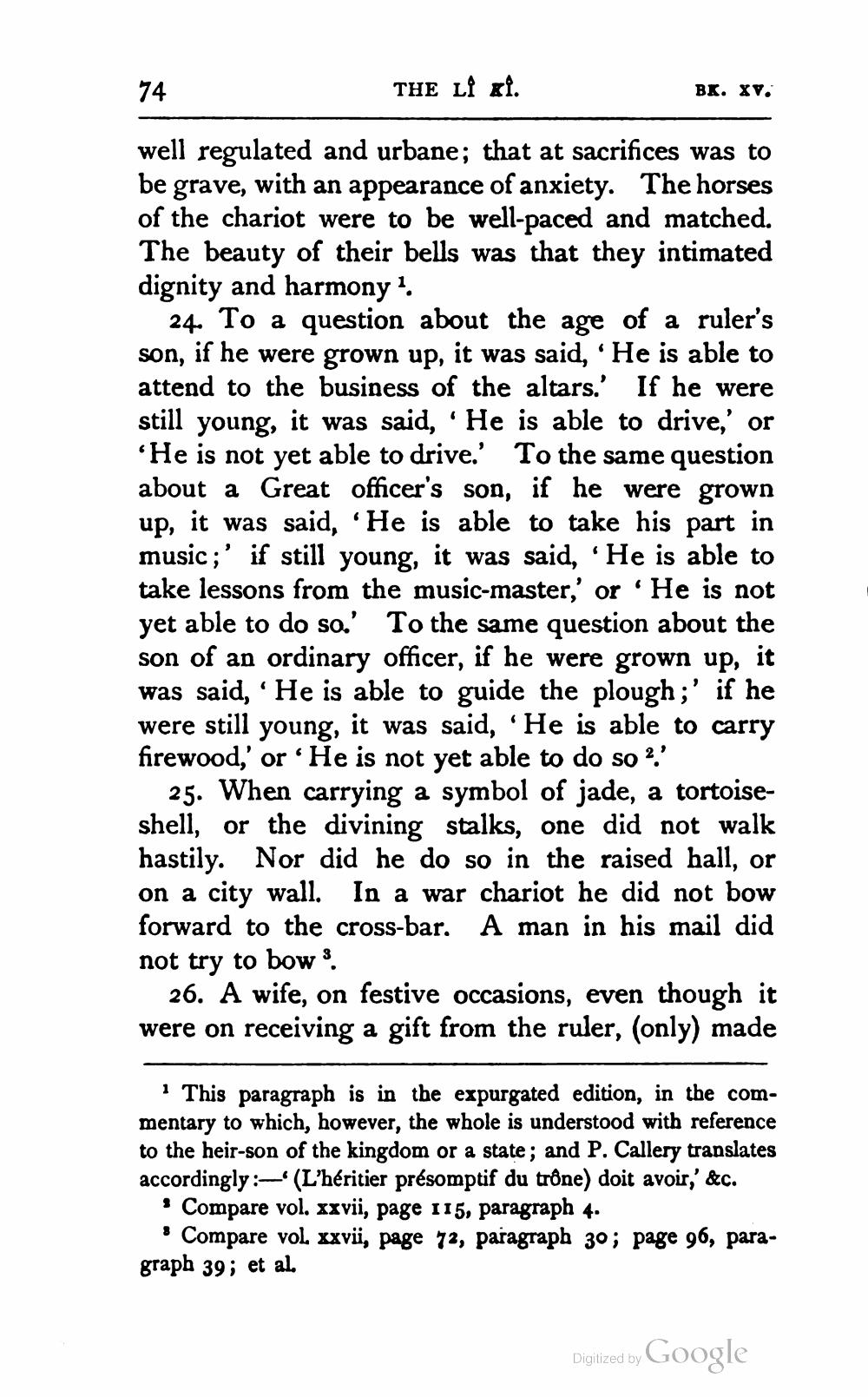________________
74
THE Li xi.
BK. XV.
well regulated and urbane; that at sacrifices was to be grave, with an appearance of anxiety. The horses of the chariot were to be well-paced and matched. The beauty of their bells was that they intimated dignity and harmony 1.
24. To a question about the age of a ruler's son, if he were grown up, it was said, 'He is able to attend to the business of the altars.' If he were still young, it was said, 'He is able to drive,' or 'He is not yet able to drive.' To the same question about a Great officer's son, if he were grown up, it was said, 'He is able to take his part in music;' if still young, it was said, 'He is able to take lessons from the music-master,' or 'He is not yet able to do so.' To the same question about the son of an ordinary officer, if he were grown up, it was said, 'He is able to guide the plough;' if he were still young, it was said, 'He is able to carry firewood,' or 'He is not yet able to do so ?'
25. When carrying a symbol of jade, a tortoiseshell, or the divining stalks, one did not walk hastily. Nor did he do so in the raised hall, or on a city wall. In a war chariot he did not bow forward to the cross-bar. A man in his mail did not try to bow
26. A wife, on festive occasions, even though it were on receiving a gift from the ruler, (only) made
1 This paragraph is in the expurgated edition, in the commentary to which, however, the whole is understood with reference to the heir-son of the kingdom or a state ; and P. Callery translates accordingly:-(L'héritier présomptif du trône) doit avoir,' &c.
• Compare vol. xxvii, page 115, paragraph 4.
. Compare vol xxvii, page 72, paragraph 30; page 96, paragraph 39; et al.
Digitized by Google




